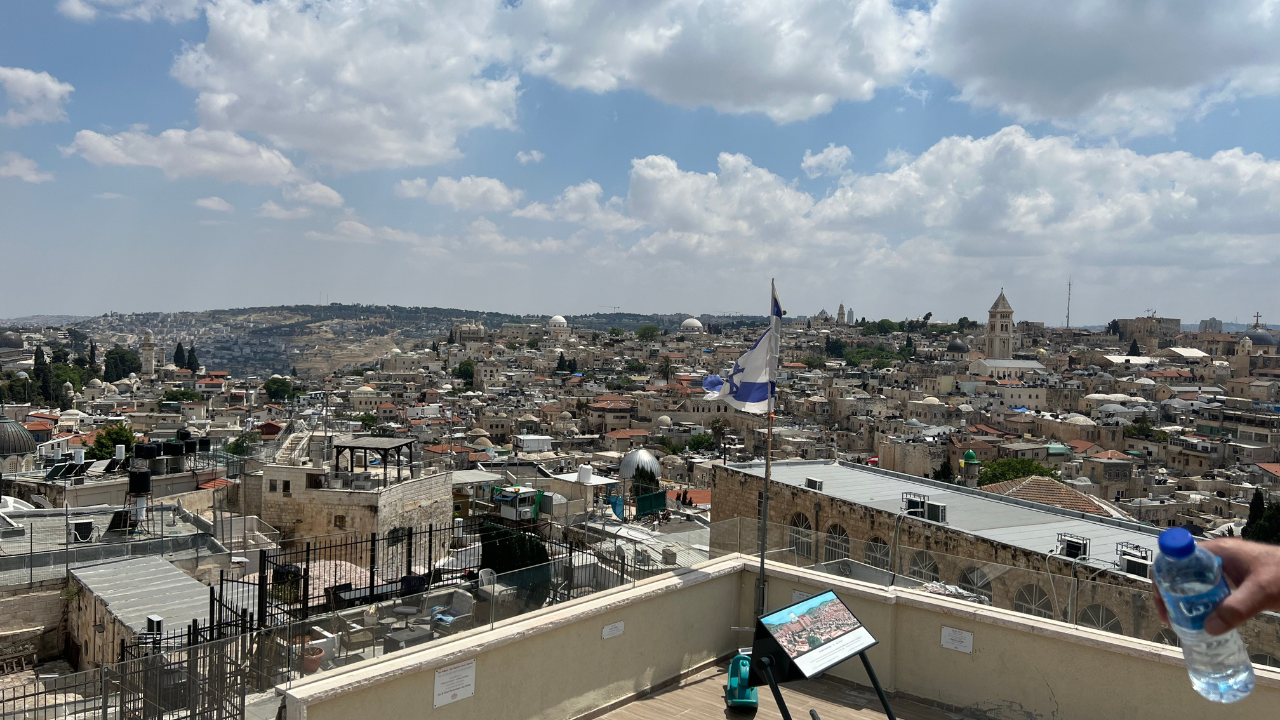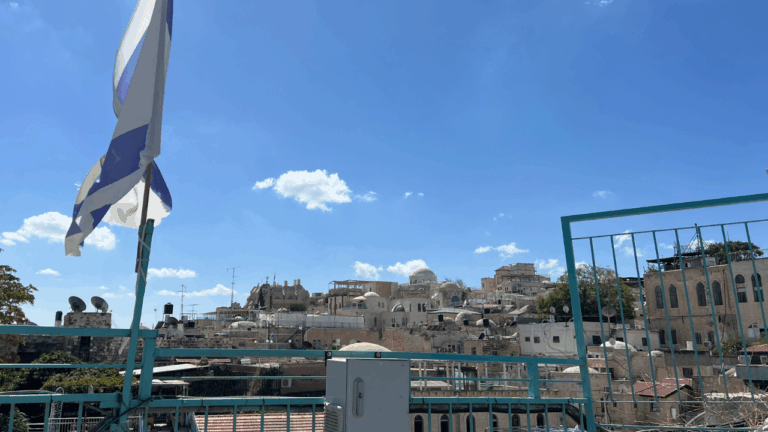A Tale of Three Domes
Allow me to describe one of my favorite berachot to recite. When traveling to the Kotel HaMaravi from Sha’ar Tzion, I personally thrill when witnessing the three beautiful domes that rise above the landscape of the Jewish quarter, domes that have been rebuilt and restored since the reclaiming of Jerusalem in 1967. I recite the blessing “Baruch matziv gvul almana”, blessed is the one who establishes the boundaries of the widow. The Gemara Berachot (58b) explains that one should recite this blessing when beholding restored batei Yisrael, houses of Israel. The Rif explains that the phrase batei Yisrael refers to synagogues that have been rebuilt.
(See Shulchan Arukh 224:10 with Pri Megadim for other interpretations of this phrase. The poskim recommend saying this blessing without Hashem’s name due to the various possible interpretations of batei Yisrael.)
The blessing borrows its language from Mishlei 15:25, where Shlomo HaMelekh informs us that God will uproot the houses of the arrogant, but reestablish the boundary of the widow. Even after the widow has been “abandoned” by her Husband and the borders of her sanctity breached, her Husband will return to restore her. And in the process, He will annihilate the haughty fools who glorified in their ability to “destroy” the boundaries of the Jewish people. The three beautiful domes are the ultimate expression of Hashem’s eternal relationship with us and His promise to restore our boundaries to times of yore.
First comes the towering dome of the Churva shul. Originally built by the Jews who made aliyah with Rebbe Yehuda Ha-Chassid in the 1700s, this breathtaking synagogue was destroyed by Arab creditors and left in ruin. It was rebuilt to its former glory by the students of the Vilna Gaon one hundred years later, becoming a centerpiece of the vibrant spiritual life of the Old City. But after the tragic loss of the Jewish quarter in 1948, the Jordanians despicably and inexplicably decided to blow up the shul, along with other key historic buildings in the area. The Churva, literally translated as Ruin, again sat in desolation for many years until the Israeli government took on the historic project of rebuilding it. Now, it again stands in stunning beauty, filled with tefillah in Torah like the days of yore. It is a testament to the indomitable spirit of Klal Yisrael and the futility of our enemies attempts to destroy our spiritual connection to the holy city.
Next comes the Tiferes Yisrael shul, now under construction and nearing completion. The Tiferes Yisrael shul was built by chassidim of the holy Rizihner Rebbe. The Chassidic court of the Rizihner was unique in its emphasis on malchus, royalty. The Rebbe himself dressed in noble finery and lived in palatial accommodations. Not surprisingly, the Tiferes Yisrael shul built by his followers shines with the beauty of royalty and prestige. It too was destroyed by the Arab Legion after the fall of Jerusalem to our enemies. And it too now rises high above the skyline, almost ready to open its doors again to the modern-day followers of the Ba’al Shem Tov.
Next comes the towering structure of Yeshivat Porat Yosef. This flagship sephardic yeshiva was endowed by a wealthy businessman named Yosef Shalom at the behest of the great tzaddik of Baghdad, the Ben Ish Chai. The original magnificent structure was home to some of the greatest sephardic leaders of the previous generation. Again, the yeshiva was destroyed by our enemies, and again, it was rebuilt overlooking the har habayit.
These three structures represent the resurgence of three unique worlds: the litvish, chassidish, and sephardic traditions have rebuilt and reclaimed their right to be in the holy city. They serve as a reminder of the ultimate promise that the widow has not been forgotten, and her Beloved will return and restore her former glory.
May we experience the day in which we recite the blessing of matziv gvul almana over the rebuilt Beit HaMikdash and fully restored Jerusalem, speedily in our days.
DOWNLOAD/PRINT



